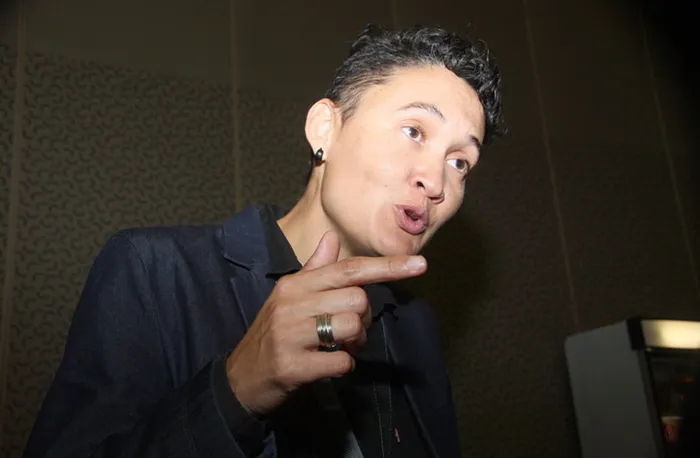
Leigh-Ann Naidoo, PhD student Leigh-Ann Naidoo, PhD student
South Africa is at a “very exciting time” in history - a new wave of activism is sweeping the country, energised by students whose behaviour was being called “disruptive”.
Wits PhD education student Leigh-Ann Naidoo’s presentation on student movements struck a chord with delegates on the second day of the Second National Higher Education Transformation Summit at the Durban International Convention Centre on Friday.
Naidoo said the growing student activism seen across the country, most recently at Wits University, where students protested against major hikes in course fees, was a signthat students wanted change.
Naidoo is involved in a movement to “imagine and realise” a decolonised African university.
The campaign is a collaboration by students and staff at the Johannesburg, Cape Town, Stellenbosch, Rhodes, and Nelson Mandela Metropolitan universities and Vaal University of Technology.
Her research explores the role that student movements play in the development of radical black student intellectuals.
Naidoo said movements were gaining momentum and speaking out about students’ concerns, such as fees and funding.
“This week at Wits, notices were put up referring to the Trespassing Act of 1959, from the years of the National Party, when those were laws that were used to oppress people. We need to ask who is this Wits that is doing that – in whose name are we invoking those 1959 rules?
“We have seen an increase in the use of regulations by senior management to criminalise students. Why are students being criminalised for expressing their views?”
Naidoo said examples such as the #RhodesMustFall campaign, which was fighting institutional racism, were powerful ways in which black students were challenging the norm of “white supremacy”.
“Students are beginning to unpack these issues, and challenge the institutions,” said Naidoo.
“The students’ process of decolonisation was scary because it disrupted the norms. (Students) exposed the hypocrisy and spoke about the inequality on campus.
“Their actions, however, were viewed as uncouth and barbaric. But the disruption was essential for them to create the space to breathe. The deepening of the crisis was necessary for a new space to be created.
“The #RhodesMustFall movement extended classroom learning beyond the walls, it called out the silent white privileged public by opening it up to broader life.”
The swell in activism had come decades after students proved a force for change.
“Students nowadays are not just studying for an education and finding employment. They understand that unless the whole system changes, things will fail. They are analysing society, they are worried about their communities and their families,” said Naidoo.
Saturday Star
* E-mail your opinion to IOLletters@inl.co.za and we will consider it for publication or use our Facebook and Twitter pages to comment on our stories. See links below.
@IOL on Twitter
IOL News on Facebook
